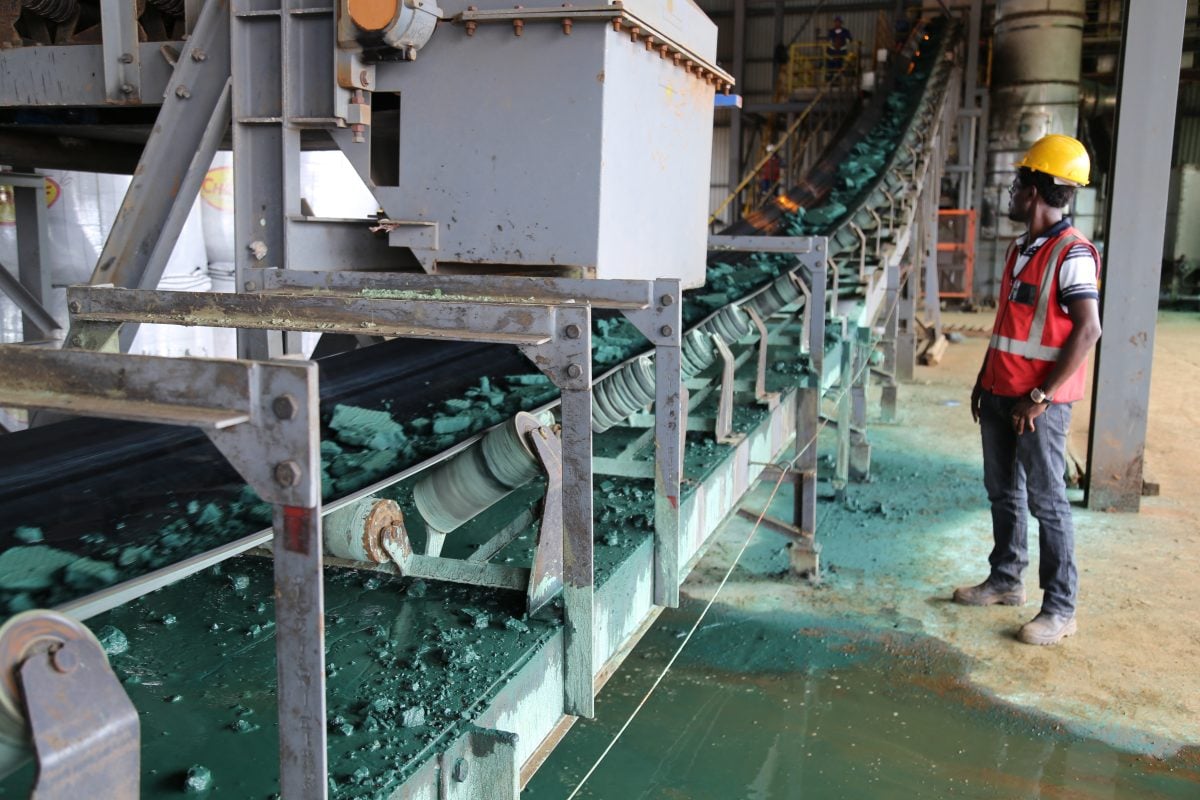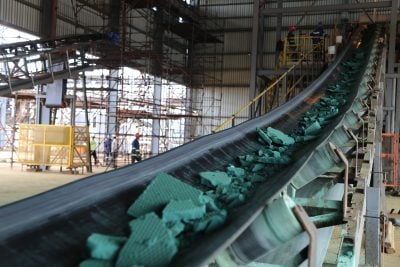The acceleration towards a clean energy future has triggered a geopolitical scramble for critical minerals such as cobalt, lithium, and copper, with global powers like the United States, China and the European Union reorienting their Africa strategy and courting African nations for access to critical mineral resources.
The African continent has become a focal point for international diplomacy. This comes at a time when the continent’s global positioning and influence continues to rise. South Africa holds the G20 Presidency this year, BRICS expansion has included more African countries, and African countries are gaining increased representation on the United Nations Security Council.
In this context, the long-awaited US Commercial Diplomacy Strategy for Africa demonstrates a notable change in US-Africa policy approach. The Trump Administration is focused on trade, private investment and partnerships in key economic areas, with critical minerals central to this objective.
Global powers taking a keen interest in Africa’s resources is not a new phenomenon. The critical question is how African leaders can transform this moment of high demand into long-term sustainable partnerships and ensure the economic benefits of the natural resources are secure for future generations.
The new scramble over resources
The recent transition from fossil fuels to renewable energy is expected to see the demand for critical minerals increase by more than four times by 2040. In the race for critical mineral resources, China currently has the advantage. Over the past two decades, China has invested heavily in the mining sectors of several key mineral-rich nations including the DRC, Zambia, Mali, Botswana and Zimbabwe.
More broadly, the Chinese hold the largest critical mineral portfolio on the continent. China’s long-term thinking is best illustrated by its $3bn resource-for-infrastructure deal with DRC’s mining parastatal in 2007. That partnership laid the groundwork for deepened infrastructure and supply chain integration that continues to serve China’s industrial interests.
By contrast, United States investment in Africa has been in steady decline, due to in part to concerns about political instability, corruption, human rights, and unfriendly regulatory frameworks in Africa. The weaning off of fossil fuels also contributed to this decline as US policy in Africa focused more on poverty alleviation and development. The Biden administration turned the tide with a more hands on approach to Africa policy and a renewed focus on critical minerals to support economic, climate and national security objectives, such as clean energy technologies and semiconductors. This has been continued by the Trump administration.
As China is already firmly embedded in the critical minerals supply chain, the United States is now rapidly developing strategies to have its own meaningful partnerships in critical mineral markets to reduce the portion of China’s market size in Africa. This shift presents a clear opportunity for African countries to assert agency, negotiate balanced partnerships, and avoid overreliance on any single global actor.
DRC: ground zero in the minerals race
The DRC, home to more than 70% of global cobalt reserves, 60% of lithium reserves and 10% of copper reserves has become ground zero in this competition. China’s long-standing presence in the DRC mining sector was initially unchallenged, highlighted by the resource-for-infrastructure deal with Sicomines in 2007. However, in a significant shift, the U.S. entered the fray earlier this year and is busy negotiating a deal that links security cooperation with the Congolese government to access its critical minerals.
Notably, this initiative came at the invitation of the Congolese government and illustrates a crucial evolution that African states are beginning to initiate and shape negotiations based on national priorities. In the DRC, securing peace and stability is the prerequisite for unlocking the economic benefits of its mineral wealth. China has since responded byalso showing support for the DRC’s security priorities, previously unheard of in their bilateral relations and a sign ofthe DRC’s bargaining power.
Other nations like Zambia and South Africa managing close relationships with both China and the United States should take note. While their contexts may differ, the lesson is the same that strategic engagement, not passive participation, is key to turning mineral wealth into broader economic opportunity and to develop value added industries that will unlock sustainable economic growth.
Building African bargaining power
With multiple external powers vying for access, African governments are in a position of leverage to negotiate better terms, demand local value addition, and ensure that partnerships translate into jobs, infrastructure, and technology transfer. All of which contribute to the long-termeconomic growth of countries.
To maximise this potential, Africa needs a coordinated approach on the expectations for future partnerships. This could include: stronger frameworks on critical mineral governance at the regional level, further investments in value-added industries such as local battery production and strengthened value chains, and finally to ensure that future partnerships are mutually beneficial as African governments have clear bargaining capability due to the large quantities of critical minerals and other natural resources.
South Africa’s G20 presidency is a timely and powerful platform to push for global financing of beneficiation projects and value chain development within Africa. If used effectively, it could mark a turning point where Africa sets the agenda for its sustainable economic growth.
Window of opportunity
The critical minerals race presents a rare geopolitical window of opportunity for Africa to set the agenda and rise as a strategic player shaping the terms of global supply chains.
This is Africa’s mineral moment. The global spotlight is on the continent. The question now is whether African leaders will move from being courted to driving the conversation and turning resources into results and maintain global attention to maximise African advantage and opportunity.
Want to continue reading? Subscribe today.
You've read all your free articles for this month! Subscribe now to enjoy full access to our content.
Digital Monthly
£8.00 / month
Receive full unlimited access to our articles, opinions, podcasts and more.
Digital Yearly
£70.00 / year
Our best value offer - save £26 and gain access to all of our digital content for an entire year!


 Sign in with Google
Sign in with Google 



